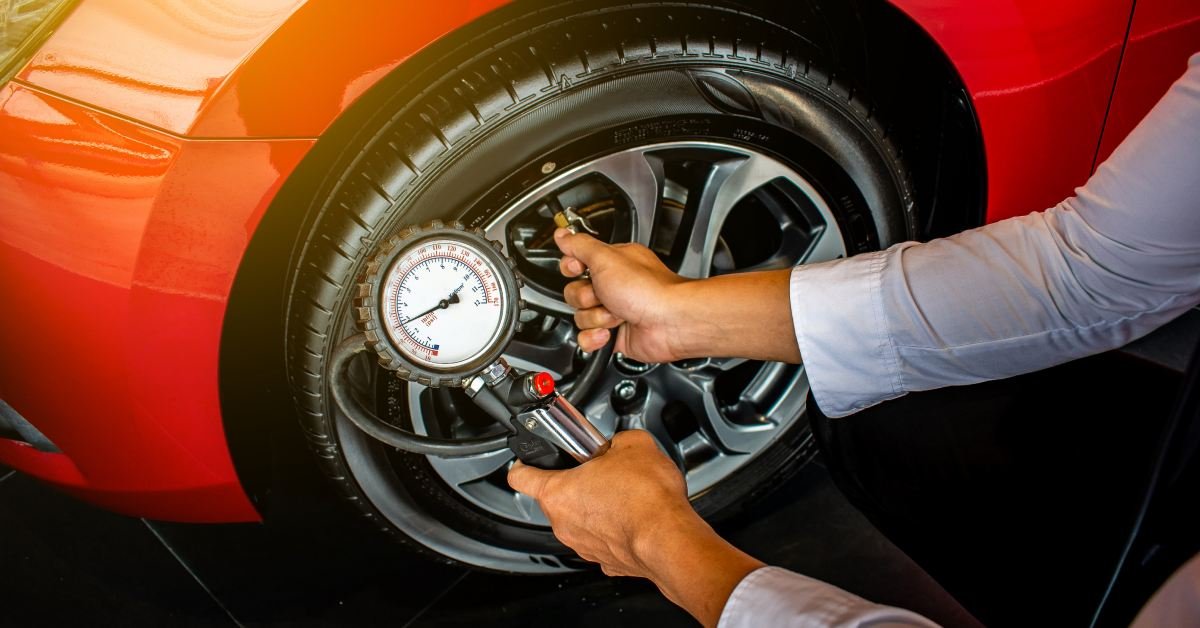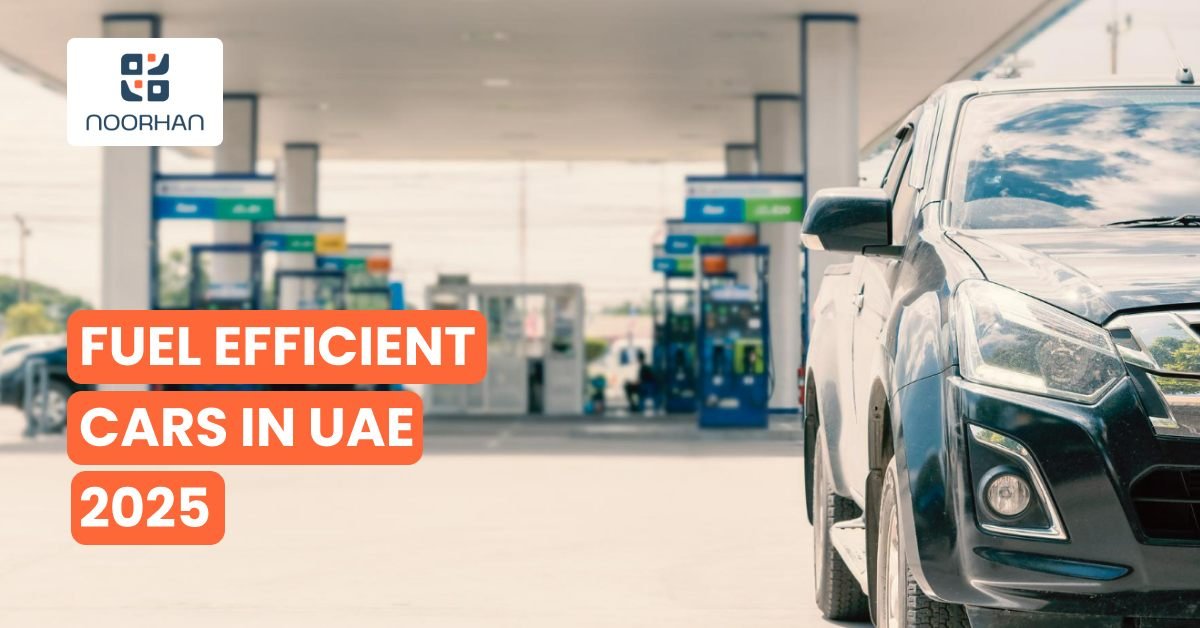-
Understanding TPMS TechnologyUnderstanding TPMS Technology
-
Safety Benefits of TPMSSafety Benefits of TPMS
-
Fuel Efficiency & UAE Fuel PricesFuel Efficiency & UAE Fuel Prices
-
TPMS & UAE Inspection ComplianceTPMS & UAE Inspection Compliance
-
Tyre Life & TPMS MaintenanceTyre Life & TPMS Maintenance
-
TPMS Maintenance EssentialsTPMS Maintenance Essentials
-
Professional Service & DiagnosticsProfessional Service & Diagnostics
-
Common TPMS IssuesCommon TPMS Issues
-
FAQsFAQs
-
TPMS Maintenance PlanTPMS Maintenance Plan
Your vehicle’s Tyre Pressure Monitoring System (TPMS) serves as a critical safety guardian in the UAE’s demanding climate, continuously monitoring tyre pressure to protect you from potentially dangerous situations on the road. With the UAE’s extreme temperature variations, proper TPMS maintenance becomes particularly crucial for vehicle safety and performance. Understanding and maintaining your TPMS can significantly impact your vehicle’s performance, fuel efficiency, and overall operating costs while ensuring optimal safety for you and your passengers.
In this comprehensive UAE-focused guide, you’ll discover:
- How TPMS maintenance prevents accidents in extreme heat conditions
- Proven strategies to improve fuel efficiency with current UAE fuel prices
- Cost-saving techniques for UAE’s challenging driving conditions
- Professional maintenance schedules for local climate
- Advanced TPMS technologies available in UAE markets
Understanding Your Vehicle's TPMS Technology
TPMS technology operates through two distinct mechanisms, each designed to monitor tyre pressure and alert drivers to potential issues. Direct TPMS uses individual sensors mounted within each tyre that measure actual air pressure and transmit real-time data to your vehicle’s central computer system. These sensors provide precise pressure readings and can detect even minor pressure variations.
Indirect TPMS takes a different approach, working in conjunction with your vehicle’s Anti-lock Braking System (ABS) sensors to monitor wheel rotation speeds. When a tyre loses pressure, its circumference decreases, causing it to rotate faster than properly inflated tyres.
🇦🇪 UAE Climate Tip: Check your owner’s manual to determine whether your vehicle uses direct or indirect TPMS, as maintenance requirements differ between systems and extreme temperature variations can affect both types.
Enhanced Safety Through Proactive Tyre Pressure Monitoring
The primary benefit of maintaining your TPMS in the UAE lies in its ability to prevent tyre-related accidents before they occur. UAE regulations require a minimum tyre tread depth of 1.6mm, and TPMS helps ensure your tyres maintain optimal performance throughout their lifespan.
Blowout Prevention in Extreme Conditions
Blowout Prevention represents one of the most critical safety benefits in regions with extreme temperature variations. Severely underinflated tyres generate excessive heat buildup, and when combined with high ambient temperatures, this significantly increases the risk of catastrophic tyre failure. TPMS provides early warning alerts that allow drivers to address pressure issues before they escalate to dangerous levels.
Improved Vehicle Control
Improved Vehicle Handling becomes crucial when driving in various road conditions. Underinflated tyres compromise steering responsiveness, increase braking distances, and reduce overall vehicle stability. Properly maintained TPMS ensures consistent pressure monitoring for optimal vehicle control in all driving conditions
Fuel Efficiency Improvements with Current UAE Fuel Prices
Maintaining proper tyre pressure through effective TPMS monitoring delivers measurable fuel economy benefits, particularly important with current UAE fuel prices. As of June 2025, UAE fuel prices are: Super 98 petrol at AED 2.58 per litre, Special 95 petrol at AED 2.47 per litre, E-Plus 91 at AED 2.39 per litre, and diesel at AED 2.45 per litre.
Rolling Resistance Optimization
Rolling Resistance Optimization becomes critical when tyres operate at correct pressures. Underinflated tyres create increased rolling resistance, forcing your engine to work harder and consume more fuel. TPMS helps maintain optimal pressure levels for peak fuel efficiency.
Calculate Your UAE-Specific Savings
Long-term Cost Savings from improved fuel efficiency are substantial with current UAE fuel prices. For every one PSI pressure drop across all four tyres, fuel efficiency decreases by approximately 0.4%. While this might seem minimal, the cumulative effect over thousands of kilometres results in substantial fuel cost savings.
💰Money-Saving Fact: Proper TPMS maintenance can improve fuel efficiency by 3-4%, providing significant savings for UAE drivers with current fuel prices.
UAE Vehicle Inspection and TPMS Compliance
Understanding UAE vehicle inspection requirements is crucial for TPMS maintenance planning. All vehicles two years or older must be tested every year before registration, while new vehicles are exempt from annual vehicle inspection for the first 3 years. Additionally, effective June 2nd, 2025, Dubai’s RTA has made vehicle inspection appointments mandatory for all vehicle inspections at technical testing centres across the emirate.
Professional Service Availability
Vehicle inspection services are available in Dubai, Sharjah, Abu Dhabi, and Al Ain, ensuring UAE residents have access to professional TPMS diagnostic and maintenance services throughout the Emirates.
Extended Tyre Life Through Proper TPMS Maintenance
Proper TPMS maintenance significantly extends tyre lifespan by preventing uneven wear patterns that occur when tyres operate at incorrect pressures. Even Wear Distribution happens when all tyres maintain consistent pressure levels, ensuring uniform contact with road surfaces and preventing premature wear on specific tyre sections.
Maximize Your Tyre Investment
Reduced Replacement Frequency translates to substantial cost savings over time. Premium tyre sets represent a significant investment, making tyre longevity an important financial consideration. TPMS helps maximize tyre investment by maintaining optimal operating conditions that can extend usable tyre life.
Maintenance Cost Reduction extends beyond tyre replacement to include related services. Properly inflated tyres reduce strain on suspension components, wheel bearings, and other drivetrain elements, potentially decreasing overall vehicle maintenance requirements.
Critical TPMS Maintenance Requirements
Understanding TPMS maintenance requirements ensures system reliability and continued benefits. Sensor Battery Life typically ranges from 5-10 years, depending on driving conditions and sensor quality. Direct TPMS sensors contain non-replaceable batteries, requiring complete sensor replacement when batteries fail.
Professional Calibration Requirements
Regular Calibration becomes necessary after tyre rotations, replacements, or pressure adjustments. Many vehicles require professional recalibration using specialized diagnostic equipment to ensure accurate pressure readings. Failure to properly calibrate TPMS after tyre service can result in false warnings or missed pressure alerts.
Temperature-Related Considerations
Temperature Adjustments are particularly important in regions with significant temperature variations. Tyre pressure naturally fluctuates with temperature changes, typically losing 1-2 PSI for every 10-degree temperature drop. TPMS helps monitor these variations, but drivers should understand normal pressure fluctuations versus actual leaks or system malfunctions.
UAE-Specific Maintenance Checklist:
- ✅ Annual TPMS system inspection
- ✅ Recalibration after tyre service
- ✅ Regular pressure monitoring during temperature extremes
- ✅ Battery replacement every 7-10 years
Professional Service and Diagnostic Requirements
TPMS systems require specialized diagnostic equipment and expertise for proper maintenance and repair. Sensor Replacement involves removing tyres from wheels, replacing failed sensors, and properly programming new sensors to communicate with your vehicle’s computer system. This process requires professional tyre service equipment and TPMS programming tools.
System Diagnostics and Testing
System Diagnostics can identify failing sensors, communication issues, or calibration problems before they result in system failures. Professional TPMS service includes testing each sensor’s functionality, verifying signal transmission, and ensuring proper system calibration.
Environmental Protection Strategies
Environmental Protection represents a critical maintenance consideration in regions with challenging climate conditions. Regular inspection and replacement of valve caps and stems helps prevent environmental damage and ensures system reliability.
📌Professional Recommendation: Have your TPMS system professionally inspected during routine tyre services to catch issues early and avoid costly emergency repairs.
Troubleshooting Common TPMS Issues
Understanding common TPMS problems helps drivers maintain system effectiveness and avoid unnecessary service costs. Temperature-Related Warning Alerts can occur due to significant temperature fluctuations. These situations require professional diagnosis to distinguish between actual pressure problems and system responses to environmental conditions.
Identifying System Malfunctions
Sensor Communication Failures may result from battery depletion, physical damage, or electromagnetic interference. Professional diagnostic equipment can identify specific sensor failures and determine appropriate repair strategies.
System Reset Requirements become necessary after tyre service, sensor replacement, or extended periods of low tyre pressure. Many vehicles require specific reset procedures or professional recalibration to restore proper system operation.
DIY Troubleshooting Steps
Before seeking professional service, try these steps:
- Check tyre pressure manually with a reliable gauge
- Verify all tyres are properly inflated to manufacturer specifications
- Drive for 10-15 minutes to allow system reset
- Consult owner’s manual for vehicle-specific reset procedures
Frequently Asked Questions
How often should I have my TPMS system checked?
TPMS systems should be inspected during regular tyre service appointments, typically every 6-12 months. Professional inspection can identify sensor battery degradation, calibration issues, or physical damage before they result in system failures.
Can I replace TPMS sensors myself?
TPMS sensor replacement requires specialized equipment to remove tyres from wheels, install new sensors, and program them to communicate with your vehicle’s computer system. Most drivers should rely on professional tyre service providers for sensor replacement.
Why does my TPMS light activate during temperature changes?
Tyre pressure naturally decreases as temperatures drop, typically losing 1-2 PSI for every 10-degree temperature reduction. This natural pressure loss can trigger TPMS warnings during significant temperature changes, even when tyres don’t have actual leaks.
How long do TPMS sensor batteries last?
TPMS sensor batteries typically last 5-10 years, depending on driving conditions and sensor quality. Frequent stop-and-go driving can reduce battery life due to increased sensor transmission requirements.
What happens if I ignore TPMS warnings?
Ignoring TPMS warnings can result in tyre damage, reduced fuel efficiency, compromised vehicle handling, and increased accident risk. Additionally, functional safety systems are important for vehicle inspection compliance.
Take Action: Your TPMS Maintenance Plan
Immediate Actions You Can Take:
- Schedule Professional Inspection: Contact a qualified tyre service center for comprehensive TPMS evaluation
- Check Current Status: Verify your TPMS warning light functionality during your next drive
- Review Owner’s Manual: Understand your specific vehicle’s TPMS requirements and reset procedures
- Plan Budget: Allocate funds for preventive TPMS maintenance
Monthly Maintenance Tasks:
- Visual inspection of tyre condition and valve stems
- Manual tyre pressure checks with quality gauge
- Monitor TPMS warning light behavior
Annual Maintenance:
- Professional calibration after tyre rotations
- System inspection during routine services
- Component replacement as needed
Conclusion: Maximize Your Investment in Vehicle Safety
Maintaining your vehicle’s TPMS represents a small investment that delivers substantial returns in safety, efficiency, and cost savings. Regular professional inspection, timely sensor replacement, and proper system calibration ensure continued benefits from this critical safety technology.
The evidence supports the importance of proper TPMS maintenance: it saves money, prevents accidents, and contributes to vehicle reliability. With UAE’s vehicle inspection requirements and current fuel prices, TPMS maintenance becomes both a safety necessity and a financial consideration for every vehicle owner.
📞 Ready to optimize your TPMS performance? Contact a certified automotive service professional today to schedule your comprehensive TPMS inspection and develop a personalized maintenance plan that protects your investment and keeps you safe on the road.🚗💨







